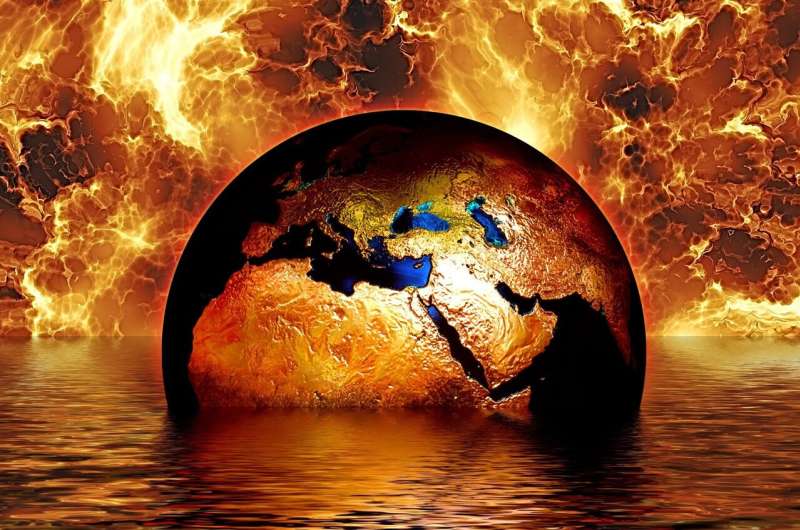How the Earth is changing across different ecosystems

Climate change is a complicated phenomenon with a variety of both abrupt and gradual effects that scientists are working hard to uncover. Emerging findings on how various ecosystems are responding to a changing climate, stemming from long-term research conducted through the National Science Foundation’s 40-year-old Long-Term Ecological Research (LTER) program, have now been published in a series of articles in the journal BioScience.
UC Santa Barbara’s Santa Barbara Coastal (SBC) LTER and Moorea Coral Reef (MCR) LTER are among the 28 sites around the world where long-term research is yielding significant insights.
“Distinguishing climate change effects arising from an increase in the frequency of abrupt events and gradual directional changes requires a long-term perspective,” said Dan Reed, a research biologist at UC Santa Barbara’s Marine Science Institute and one of the founders of the SBC LTER. “Research at LTER sites is well poised to investigate both of these types of climate change phenomena because it combines long-term observational data to document patterns of spatial and temporal change with experiments, and targeted sampling to identify the biological and physiochemical mechanisms producing the observed changes.”
Among the information collected at the LTER sites are data on changes in air and water temperature, rainfall, sea level, novel disturbances, altered primary production, enhanced cycling of organic and inorganic matter and changes in the populations and communities.
Climate change is producing suites of different and often unique impacts in various places. The findings presented in the BioScience LTER series explore what climate change looks like across four main ecosystems: forest and freshwaters, drylands, coastal, and ocean.
“Many coastal ecosystems are defined by structure-forming foundation species, which play a disproportionately important role in determining the ecological attributes of the system and their socioeconomic benefits,” Reed said.
At the SBC LTER, giant kelp plays an outsized role in the waters just offshore from Santa Barbara, creating submarine forests that are among the most productive ecosystems in the world. Climate change affects this productivity, in the form of rising sea temperatures and storms that can affect the ephemeral kelps’ ability to establish themselves and attract communities of fish and other sea creatures that call these forests home.
Meanwhile, the MCR LTER, located in French Polynesia, represents one of the most biodiverse ecosystems in the word, thanks to its foundation species—reef-building corals. Climate change here primarily affects water temperature, which increasingly is resulting in “bleaching” of coral, which starve to death when heat stress causes them lose their symbiotic algae. More powerful storms are also destroying the habitat many organisms call home.
“While strong storms have been a major disturbance to coral throughout their geologic history, episodes of mass coral bleaching from marine heat waves are a recent phenomenon that are increasing in severity and frequency as climate change warms the ocean,” said Russ Schmitt, a professor of ecology in UCSB’s Department of Ecology, Evolution and Marine Biology and lead principal investigator of the MCR LTER site in UCSB’s Marine Science Institute.
“Our paper examines results from LTER research in kelp forests, coral reefs, tidal marshes, seagrass meadows, mangrove forests and barrier islands that demonstrate how climate change is altering the abundance and performance of coastal foundation species to affect ecological attributes and services of entire coastal ecosystems,” Reed said. “We discuss how the integrated research approach shared by LTER sites has been particularly effective in quantifying the extent to which coastal ecosystems are able to resist and recover from different forms of climate change and their capacity to adapt to climate change in the long-term.”
Other papers in the series concentrate on dryland ecology, where warming, combined with multi-decadal drought cycles have enhanced floods and wildfires, altered resource availability, plant community structure, while severe droughts, wildfire and dust events have exacerbated air pollution.
In forests and freshwater areas, the findings discuss effects on species composition and ecosystem function. This occurs through complex interactions, cascading effects and feedbacks to the climate system resulting from altered streamflow and changes in ecosystem processes such as primary production, carbon storage, water and nutrient cycling and community dynamics.
In the ocean, climate change is causing relatively broad physical changes in pelagic ecosystems, such as increased sea temperatures, altered stratification of surface layers and declining sea ice, which is producing varied ecological responses.
Biodiversity is key to kelp forest health
Daniel C Reed et al, Responses of Coastal Ecosystems to Climate Change: Insights from Long-Term Ecological Research, BioScience (2022). DOI: 10.1093/biosci/biac006
Julia A Jones et al, Long-Term Ecological Research on Ecosystem Responses to Climate Change, BioScience (2022). DOI: 10.1093/biosci/biac021
Amy R Hudson et al, Cross-Site Comparisons of Dryland Ecosystem Response to Climate Change in the US Long-Term Ecological Research Network, BioScience (2021). DOI: 10.1093/biosci/biab134
John L Campbell et al, Forest and Freshwater Ecosystem Responses to Climate Change and Variability at US LTER Sites, BioScience (2021). DOI: 10.1093/biosci/biab124
Hugh Ducklow et al, Marine Pelagic Ecosystem Responses to Climate Variability and Change, BioScience (2022). DOI: 10.1093/biosci/biac050
Citation:
How the Earth is changing across different ecosystems (2022, August 17)
retrieved 17 August 2022
from https://phys.org/news/2022-08-earth-ecosystems.html
This document is subject to copyright. Apart from any fair dealing for the purpose of private study or research, no
part may be reproduced without the written permission. The content is provided for information purposes only.
For all the latest Science News Click Here
For the latest news and updates, follow us on Google News.

